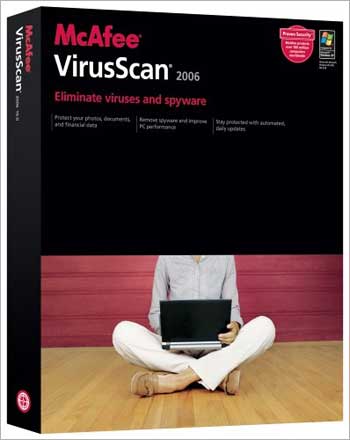Cybercriminals take advantage of the holiday season, aiming to steal consumers' money, identities and financial information.
As cybercriminals begin to take advantage of the holiday season, McAfee has revealed the 12 most dangerous online scams that computer users should be cautious of this holiday season.
According to Consumer Reports' 2009 State of the Net Survey, cybercriminals have bilked $8 billion from consumers in the past two years, and McAfee warns consumers not to fall victim to the top scams this year.
"Cybercriminals use their best schemes during the holidays to steal people's money, credit card information, social security number and identity," said Jeff Green, senior vice president of McAfee Labs.
"These thieves follow seasonal trends and create holiday-related Web sites, scams and other convincing e-mails that can trick even the most cautious users."
Beware of these 12 online Christmas scams!
Image: Be careful who you offer charity to during the holiday season.Photographs: Illustration by Uttam Ghosh.
McAfee's 12 scams of Christmas
Scam I -- Charity phishing scams: Be careful who you offer charity to during the holiday season. Hackers take advantage of citizens' generosity by sending e-mails that appear to be from legitimate charitable organisations. In reality, they are fake web sites designed to steal donations, credit card information and the identities of donors.
Scam II -- Fake invoices from delivery services to steal your money: During the holidays, cybercriminals often send fake invoices and delivery notifications appearing to be from Federal Express, UPS or the US Customs Service.
They e-mail consumers asking for credit card details to credit back the account, or require users to open an online invoice or customs form to receive the package. Once completed, the person's information is stolen or malware is automatically installed on their computer.
Scam III -- Social networking -- a cybercriminal 'wants to be your friend': Cybercriminals take advantage of this social time of the year by sending authentic-looking 'new friend request' e-mails from social networking sites.
Internet users should know that clicking on links in these e-mails can automatically install malwares on computers and steal personal information.
Beware of these 12 online Christmas scams!
Image: McAfee VirusScan.Scam IV -- The dangers of holiday e-cards: Cyber thieves cash in on consumers who send holiday e-cards in an effort to be environmentally-conscious.
Last holiday season, McAfee Labs discovered a worm masked as Hallmark e-cards and McDonald's and Coca-Cola holiday promotions. Holiday-themed PowerPoint e-mail attachments are also popular among cybercriminals. Be careful what you click on.
Scam V -- 'Luxury' holiday jewellery comes at a high price: McAfee Labs recently uncovered a new holiday campaign that leads shoppers to malware-ridden sites offering 'discounted' luxury gifts from Cartier, Gucci, and Tag Heuer.
Cybercriminals even use fraudulent logos of the Better Business Bureau to trick shoppers into buying products they never receive.
Scam VI -- Practise safe holiday shopping; online identity theft on the rise: Forrester Research Inc. predicts online holiday sales will increase this year as more bargain-hunters turn to the web for deals.
While users shop and surf on open hotspots, hackers can spy on their activity in an attempt to steal their personal information. McAfee tells users never to shop online from a public computer or on an open Wi-Fi network.
Beware of these 12 online Christmas scams!
Image: Downloading holiday-themed files may infect one's computer with spyware, adware or other malware.Photographs: Illustration by Uttam Ghosh
Scam VII -- Christmas carol lyrics can be dangerous; holiday searches risky: During the holidays, hackers create fraudulent holiday-related web sites for people searching for a holiday ringtone or wallpaper, Christmas carol lyrics or a festive screensaver.
Downloading holiday-themed files may infect one's computer with spyware, adware or other malware. McAfee found one Christmas carol download site that led searchers to adware, spyware and other potentially unwanted programmes.
Scam VIII -- Job-related e-mail scams: The US unemployment rate recently spiked to 10.2 per cent, highest since 1983.
Scammers are preying on desperate job-seekers in the poor economy, with the promise of high-paying jobs and work-from-home money-making opportunities.
Once interested persons submit their information and pay their 'set-up' fee, hackers steal their money instead of following through on the promised employment opportunity.
Scam IX -- Outbidding for crime -- auction site fraud: Scammers often lurk on auction sites during the holiday season. Buyers should be aware of auction deals that appear too good to be true, because often these purchases never reach their new owner.
Beware of these 12 online Christmas scams!
Image: Password theft is rampant during the holidays.Scam X -- Password stealing scams: Password theft is rampant during the holidays as thieves use low-cost tools to uncover a person's password and send out malware to record keystrokes, called keylogging.
Once criminals have access to one or more passwords, they hack consumers' bank and credit card details and clean out accounts within minutes.
They also commonly send out spam from a user's account to their contacts.
Scam XI: E-Mail banking scams: Cybercriminals trick consumers into divulging their bank details by sending official-looking e-mails from financial institutions.
They ask users to confirm their account information, including a username and password, with a warning that their account will be come invalid if they do not comply. Then they often sell this information through an underground online black market.
McAfee Labs believes cybercriminals are more actively scamming consumers with this tactic during the holidays since people are monitoring their purchases closely.
Scam XII -- Ransomware scams: Hackers gain control of people's computers through several of these holiday scams.
They then act as virtual kidnappers to hijack computer files and encrypt them, making them unreadable and inaccessible. The scammer holds the user's files ransom by demanding payment in exchange for getting them back.
Beware of these 12 online Christmas scams!
Image: Remember to only shop on websites that begin with https://, instead of http://McAfee advises Internet users to follow these five tips to protect their computers and personal information:
1. Never and spy on online activity.
Also, remember to only shop on websites that begin with https://, instead of http://, and seek out web sites with security trustmarks.
4. Use different passwords: Never use the same passwords for several online accounts. Diversify passwords and use a complex combination of letters, numbers and symbols.
5. Use common sense: If you are ever in doubt that an offer or product is not legitimate, do not click on it. Cybercriminals are behind many of the seemingly 'good' deals on the Web, so exercise caution when searching and buying.
If you think you may be a victim of cybercrime, visit McAfee's Cybercrime Response Unit to assess your risks and learn what to do next at www.mcafee.com/cru.







article